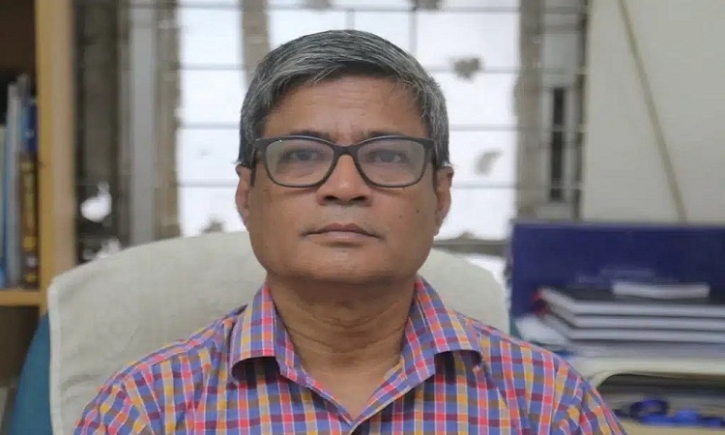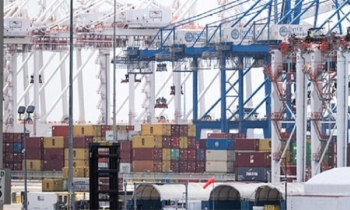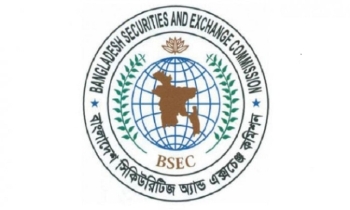Health rules must be maintained when using Asbestos: Expert
BI Report || BusinessInsider

Photo: Courtesy
Dr. Mahmud Hossain Faruquee completed his SSC from West End High School in the capital, his HSC from Notre Dame College, and his MBBS from Rajshahi Medical College.
He later earned a master’s degree in Occupational and Environmental Health from the National Institute of Preventive and Social Medicine (NIPSOM) under Dhaka University.
In addition to teaching in this field, he is actively engaged in research on occupational and environmental health.
Recently, he talked about the health protection of workers and their rights, usage rules of Chrysotile, and asbestos in an interview with reporter Hamidur Rahman.
Business Insider: First I would like to know about your childhood, education and current work. How many years have you been working or doing research in this field besides teaching?
Faruquee: I am working as a professor and head of department, Department of Occupational and Environmental Health, at Bangladesh University of Health Sciences (BUHS). In a long career of 35 years, I was a teacher at the university level for around 16 years and in various private international organisations and project management.
I worked as a senior occupational safety and health expert for the Padma Multipurpose Bridge construction project with the World Health Organisation, UNICEF, UNDP, World Bank, and Asian Development Bank. I have a total of 114 (72 domestic and 42 foreign) journal publications to my involvement in various studies. Now I am trying to figure out how we design our security in a resource-poor setting in this sector.
Business Insider: India currently manufactures about 25 crore tonnes of cement sheets for houses, mills, factories, poultry, and cattle farms, with Chrysotile fiber being used in the production of these cement sheets. If Chrysotile fiber caused cancer, wouldn't there be a flood of corpses in India? How can this be explained?
Faruquee: If you compare India and Bangladesh, you will not find much difference. In some aspects, the situations in the two countries are almost the same. There are certain heavy materials that can cause cancer 15-20 years after our bodies come into contact with them.
However, identifying who is getting cancer or who is at health risk is challenging, and none of us truly know.
Doctors often don't know if it's an occupational disease or not. Many don't even know where to report it. They cannot provide answers even if they go to our health section. Systems need to be developed to obtain accurate data. Investigations should be conducted to understand how or why the workers are dying. Although there are some studies on this issue, specific numbers are lacking. Moreover, the workers in this sector cannot live long.
Between the ages of 40 and 50, various health problems begin to occur in their bodies. The International Chrysotile Association (IAC) has also protected the business interests of the asbestos industry. Chrysotile asbestos is scientifically proven to cause cancer. Therefore, whether a country imports Chrysotile asbestos or uses it commercially depends on whether that country's health-conscious population has a strong influence on the government or if its businessmen are more influential.
Business Insider: Indian steel manufacturers filed a petition with the Supreme Court against the production of cement sheets or the use of Chrysotile fibers in India, Sri Lanka, Thailand, and Indonesia, but it was rejected. So how can you ensure that there are health risks in producing cement sheets or using Chrysotile fibers?
Faruquee: The Indian government is aware of the harmful effects of asbestos but is heavily influenced by the industry's profit-driven growth. Mansukh Laxmanbhai Mandaviya is an Indian politician currently serving as the Minister of Health and Family Welfare and Chemicals and Fertilizers of India in 2022 promoted the asbestos business. On the global stage, a landmark ruling in favor of banning the trade in asbestos came in 2001 when the World Trade Organisation (WTO) supported France's move to ban the substance.
Canada called on the WTO to review the validity of France's ban, which was announced in 1997. The seven-member committee that heard the appeals of the WTO delivered its verdict, saying that dangerous substances cannot be judged to be similar to safe substances. This judgment was strongly protested by asbestos trade lobbies in India, who argued that no trade organisation should be involved in health-related issues.
Business Insider: Has the World Health Organisation issued any circular or notifications on health risks?
Faruquee: It is important to follow health rules when using asbestos. The WHO cites guidelines stating that controlled use of Chrysotile asbestos will not cause any health risks. However, a WHO report in 2014 claimed that the most effective way to eliminate asbestos-related diseases is to stop using all forms of asbestos.
Business Insider: The Sri Lankan Department of Environment announced bringing the use of Chrysotile to zero level between 2016 and 2020, but later canceled the decision in 2018 following research by the Sri Lankan Ministry of Science and Technology. Similarly, Thailand has proposed a ban on Chrysotile, but based on research by the Department of Science of that country, the use of Chrysotile is considered safe. How would you evaluate them?
Faruquee: Asbestos—an inexpensive, heat-resistant mineral—was once widely used in construction materials around the world. Now, it is banned in 70 countries that consider this building material a silent killer because its fibers are carcinogenic. India has about 673 small-scale asbestos mines and factories, and 33 large asbestos manufacturing plants (excluding 17 asbestos-cement product manufacturing plants and 16 asbestos-cement product plants).
Asbestos (Chrysotile) is found in Asbestos cement sheets. A clinical examination showed that 25 percent of the workers who worked in these factories had lung problems.
It usually takes at least 15-20 years for cancer to develop, so we may or may not see any studies of people who previously worked in these factories or mines, especially if they have relocated from another state. An economist says the Chrysotile asbestos trade continues because commercial interests are prioritized ignoring human welfare.
Business Insider: Did you know that in the last 40 years, no new research has been done or added since there is no possibility of new data proving that Chrysotile is harmful? How do you see the issue?
Faruquee: It is not true at all. Research on cancer-causing substances, including Chrysotile asbestos, is indeed ongoing, and organisations like the International Agency for Research on Cancer (IARC) play a crucial role in this process.
As an agency of the United Nations, IARC continuously evaluates scientific evidence to classify various substances based on their carcinogenicity and provides valuable insights into the risks associated with exposure to these substances.
























